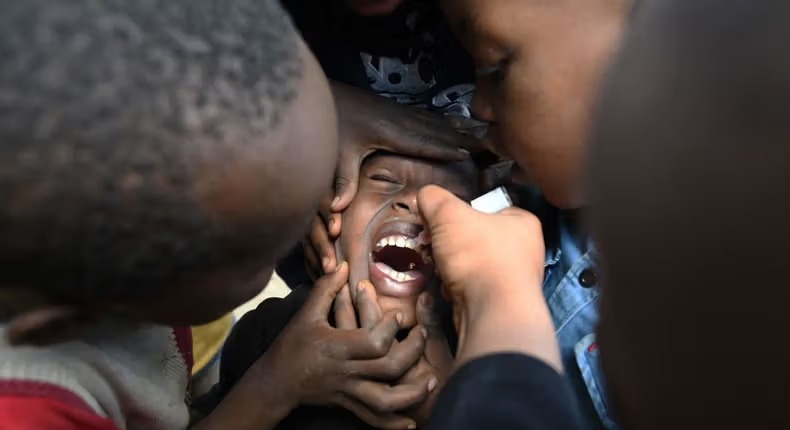The World Health Organisation (WHO) on Thursday said the circulating variant of poliovirus type 2 has decreased by 38 per cent in Nigeria within a year.
The WHO’s Country Representative, Dr Walter Mulombo, made this known at a news conference shortly after a roadshow as part of the programme to commemorate the World Polio Day in Maiduguri.
“In Nigeria, we have witnessed over 38 per cent decrease in circulating variant poliovirus type 2 cases between 2023 and 2024.
“This signifies the great efforts by the Government and partners to interrupt the cVPV2 outbreak,” Mutombo, who was represented by Dr Aisha Kadi said.
The country representative said that the only reason why the polio virus thrived was because of the inability of the stakeholders to vaccinate the remaining un- or under-vaccinated children in the communities.
“I therefore want to add my voice to the call for greater community commitment to ensure that children get vaccinated,” Mulombo said.
The country representative insisted that the widespread of cVPV2 globally reiterates the reality that as long as polio exists anywhere, all countries will remain at risk.
He, however, expressed happiness over the collective efforts of the teeming stakeholders in fighting polio, adding that more than 20m people walking would otherwise have been paralyzed by the dreadful disease.
“Billions of children have been protected with lifesaving immunizations. Five of the six World Health Organization Regions including AFRO are free from wild poliovirus.
“The work of the polio programme is now concentrated in some of the most complicated and fragile settings.
“Challenges to reaching all children with vaccines are serious, ranging from persistent violence, concealment, refusals to climate emergencies.
“The transmission of polio in conflict-affected areas in Gaza, Sudan, and Yemen is a stark reminder that where conflict debilitates health and sanitation systems, polio will inevitably appear unless we eradicate all forms of the virus.
“That is why this year’s World Polio Day is perhaps an opportunity not just to celebrate progress: but indeed, to re-garner support and commitment at all levels to finish the job once and for all.
“The heroic achievements by the volunteers, community workers, religious and traditional leaders as well as those who perished in the course of duty in eradicating poliovirus should continue to be acknowledged and recognised,” Mulombo said.
While reiterating the commitment of WHO to polio eradication efforts, the country representative said the vaccine was safe and effective.
NAN
